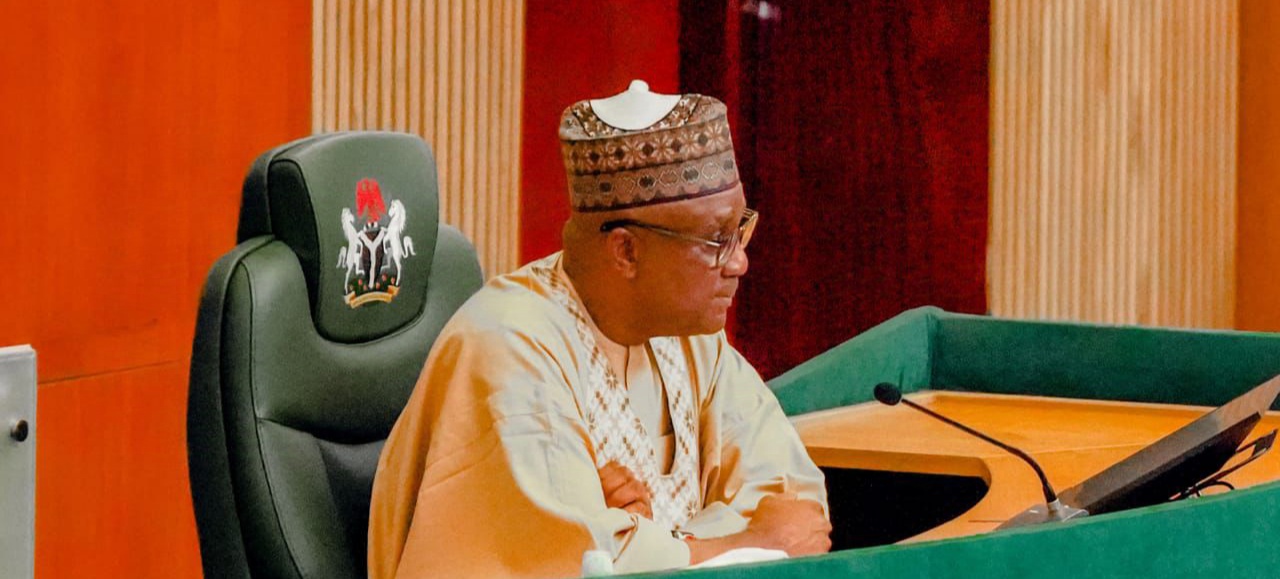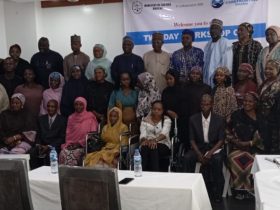The Speaker of the House of Representatives, Rt. Hon. Abbas Tajudeen, Ph.D, has said the government needs to reflect on the fiscal realities of Nigeria’s economy, especially the budget-population ratio of the country, when Nigeria is compared with other countries in Africa.
Speaker Abbas said this in his vote of thanks following the presentation of the 2025 Appropriation Bill to a joint session of the National Assembly Senate by President Bola Ahmed Tinubu, GCFR, on Wednesday.
The Speaker noted that the Tinubu administration has taken bold and decisive steps to reform the economy in the past 18 months, stressing that removing fuel subsidies, unifying foreign exchange rates, and introducing innovative economic policies have laid a solid foundation for sustainable growth and development.
Speaker Abbas said while these reforms have demanded short-term sacrifices, they are acts of courage and patriotism. He added that history has shown that transformative progress often begins with difficult decisions.
He cited examples from China’s market reforms, India’s liberalisation, and South Korea’s industrialisation which, he stated, affirm the enduring benefits of such bold action. “These lessons inspire confidence that Nigeria’s ongoing reforms will foster economic growth, reduce poverty, and ensure long-term prosperity,” he stated.
The Speaker also stated that the Tinubu administration’s reforms have “disrupted the status quo, sparking resistance from vested interests,” noting that, “Yet these courageous measures underscore your resolve to prioritise the welfare of Nigerians.”
The Speaker noted that the proposed 2025 budget of N49.7 trillion— a 35 percent increase over 2024— is “ambitious and commendable.” He also said the projections of 4.6 percent Gross Domestic Product (GDP) growth, a crude oil price of $75 per barrel, an exchange rate of N1,400 to the dollar, and oil production of 2.06 million barrels per day are bold but achievable.”
He added: “However, Nigeria’s fiscal realities warrant critical reflection. Despite being Africa’s most populous nation with over 220 million people, our 2024 national budget of $36.7 billion remains modest compared to countries like South Africa, with a budget of $160 billion for its 60 million citizens; Egypt, with $110 billion for 110 million people; Algeria, with $60 billion for 45 million people; and Morocco, allocating $50 billion for its 37 million residents.
While stating that stabilising prices, boosting agricultural productivity, expanding infrastructure, and investing in education, healthcare, and security “remain paramount priorities,” Speaker Abbas added that to strengthen national unity and build trust, it is essential for the government to communicate its achievements effectively to the Nigerian people.
“As we approach 2025, we must embrace the realities before us with determination,” the Speaker said.
The Speaker assured President Tinubu that the National Assembly is fully committed to supporting the successful implementation of the 2025 budget. “This is not merely your budget; it is a national project requiring collaboration across all arms of government,” he said, adding that the parliament will work to ensure its timely passage, provide legislative support for critical reforms, and conduct robust oversight to guarantee transparency and efficiency in its execution.
He said: “Mr. President, colleagues, let us take a moment to recognise and honour the profound sacrifices made by each and every Nigerian over the past year. The removal of fuel subsidies, rising inflation, and adjustments to economic policies have created challenges. Yet, these sacrifices are necessary for building a stronger, self-reliant, and prosperous nation. I call on all Nigerians to remain resilient and united in our collective pursuit of a brighter and better Nigeria.”









Leave a Reply